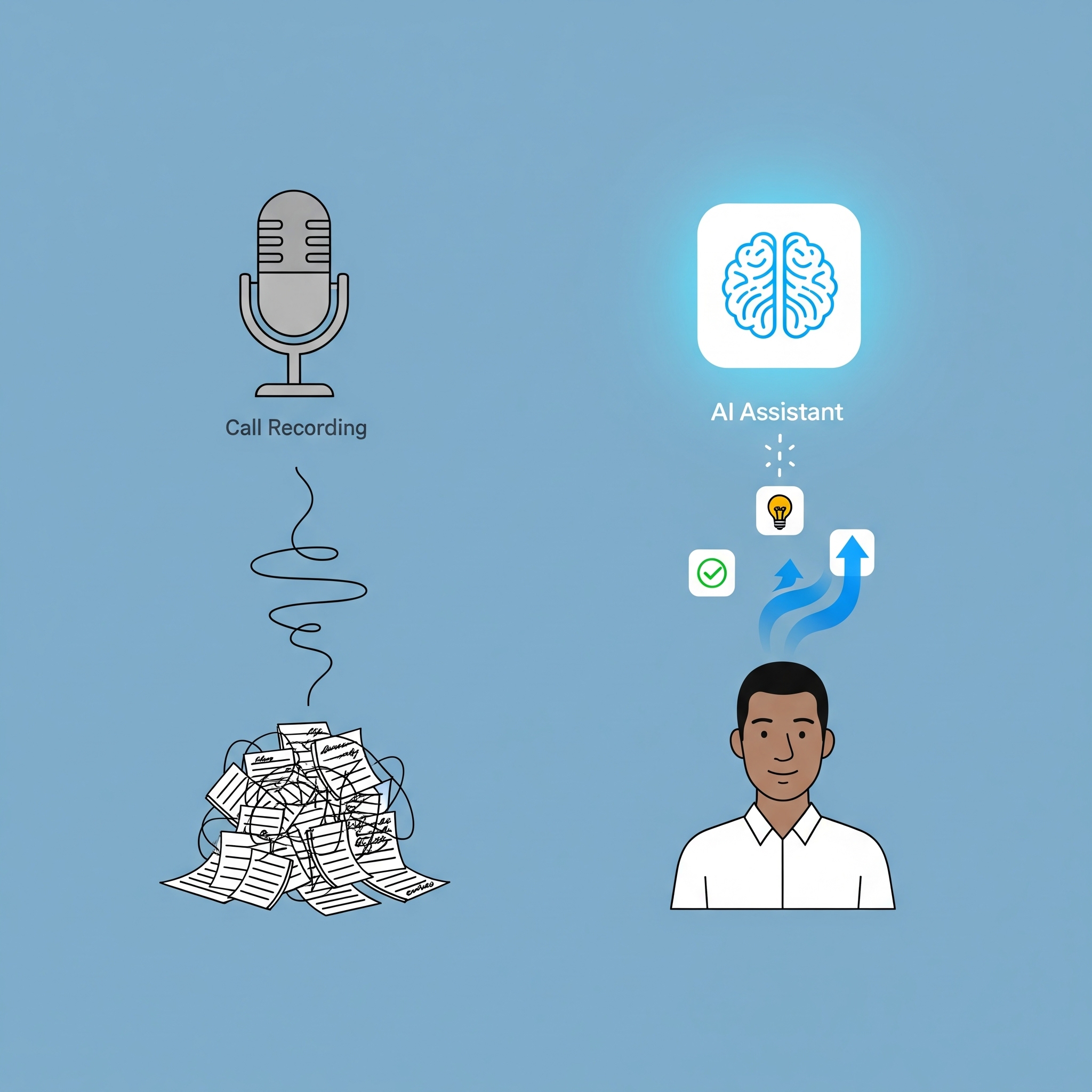For years, the gold standard in sales technology has been the call recorder. These tools automatically transcribe your conversations, log them to the CRM, and provide a searchable record of every meeting. They are, without a doubt, a significant upgrade from manual notetaking.
However, a call recorder is fundamentally a passive tool. It captures the history of a conversation, but it does nothing to change its outcome in the moment. The difference between a notetaker and a deal-winner is profound. While a recorder documents what happened, a true ai sales agent actively helps you influence what's happening right now.
The Notetaker: Retrospective, Not Proactive
A traditional call recorder's role is retrospective. Its primary function is to provide a record for post-call analysis and sales call coaching. While useful, this approach has limitations:
- No Real-Time Guidance: It cannot remind you of a forgotten talking point from your sales playbook or suggest a better way to handle an objection as it happens.
- Delayed Insights: A key insight from a recording is only useful for the next meeting, not the one you're currently in. The time for a course correction has passed.
- Limited Sales Efficiency: It streamlines post-call work but does nothing to improve the quality of the conversation itself.
The sales process optimization offered by these tools is limited to a better review process, not a better live performance.
The Deal-Winner: Your AI-Powered Sales Partner
The new era of ai sales enablement is defined by the rise of the AI sales agent. This advanced ai tool for sales is not just a listener; it's a participant. It is the ultimate sales enablement platform for live conversations.
Here’s why an AI assistant is a game-changer:
- In-Meeting Guidance: A real-time ai sales agent is a true partner. It can provide live, contextual prompts from your sales playbook examples and your knowledge base. When a customer brings up a competitor, for example, the AI can instantly display the key talking points you need to counter the objection. This is a crucial element of modern sales training.
- Proactive Problem-Solving: The AI can recognize patterns in conversation and alert you to potential issues. If a deal is stalling, it can prompt you with questions to get it back on track. This proactive approach is the essence of true sales productivity tools.
- Enhanced Sales Onboarding: For new hires, an AI assistant is the best form of sales onboarding best practices. It helps them navigate complex conversations from day one, giving them the confidence and information they need to succeed and to accelerate their time to revenue.
- Automatic, In-Depth Recaps: While a call recorder gives you a simple transcription, the AI sales agent can create a strategic summary with key discussion points, customer commitments, and actionable next steps, streamlining the sales onboarding process and saving hours of manual work.
From Notetaker to Deal-Winner
The best b2b sales enablement strategy is one that empowers a sales professional with the information they need, precisely when they need it. The future of selling is not about passive recording. It's about proactive, real-time assistance. By leveraging the best ai tools for sales, you empower your team to move beyond simply documenting conversations and to start winning them.

